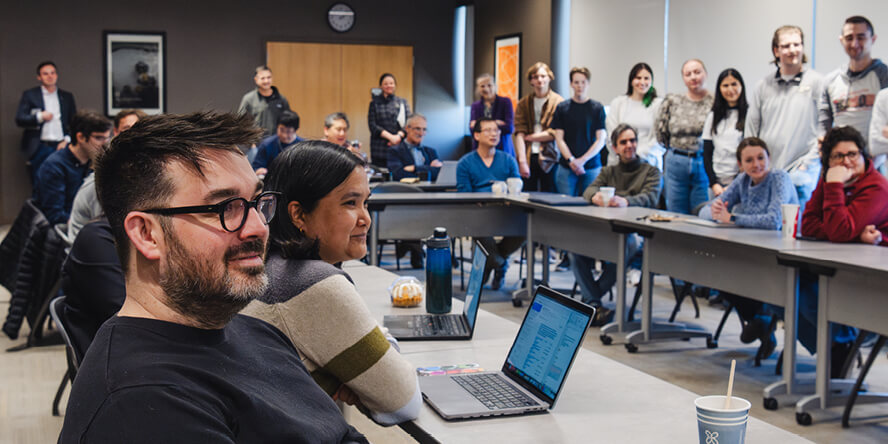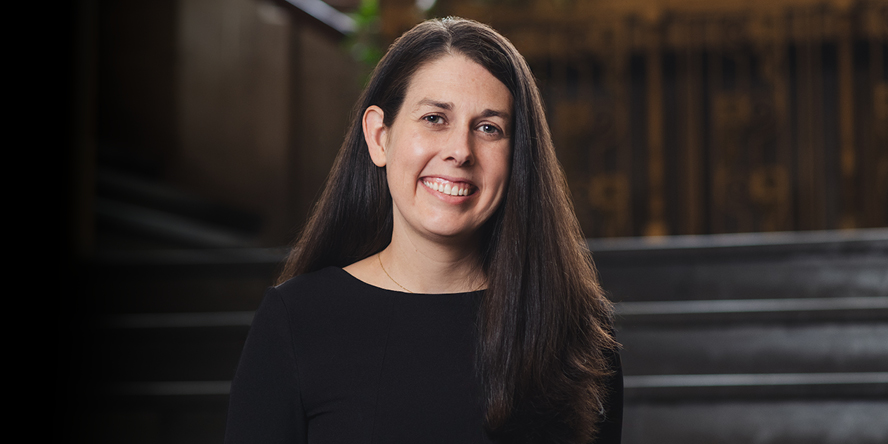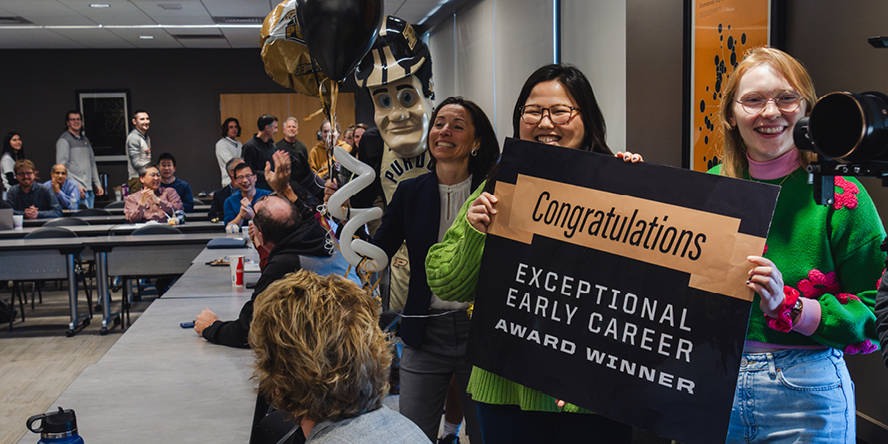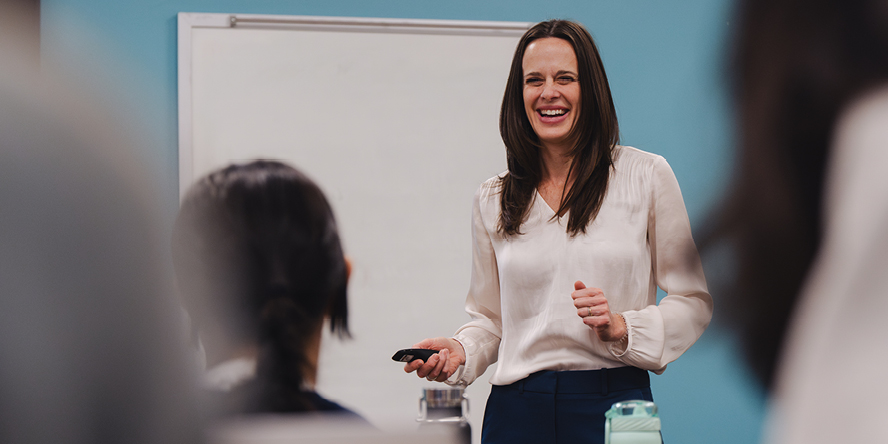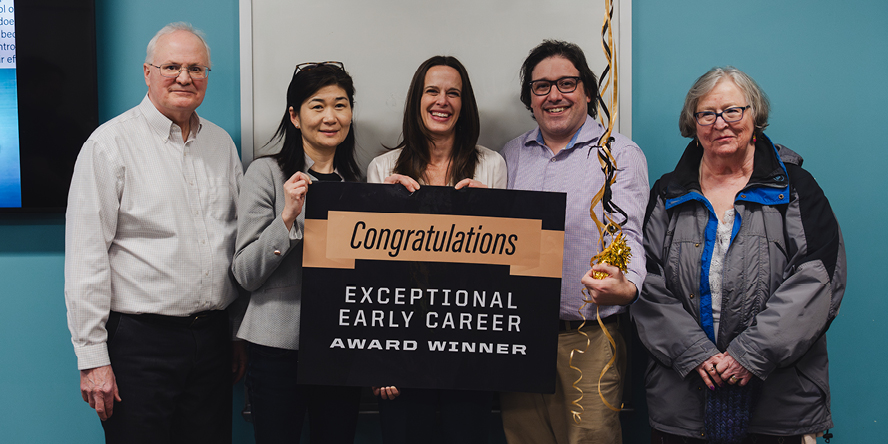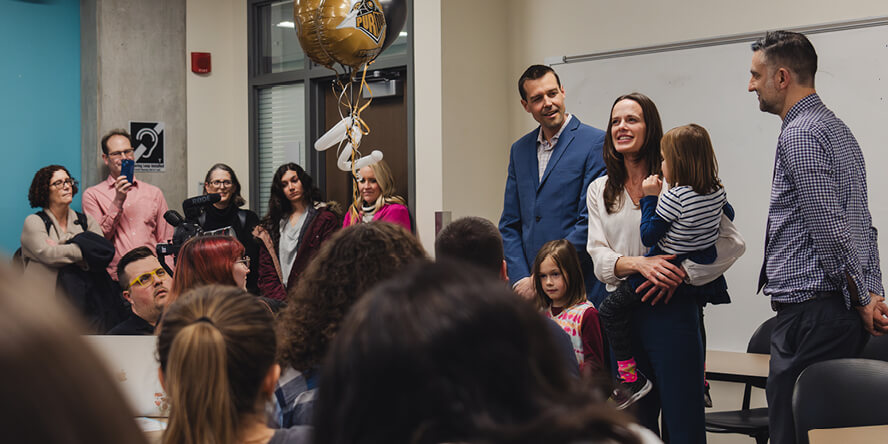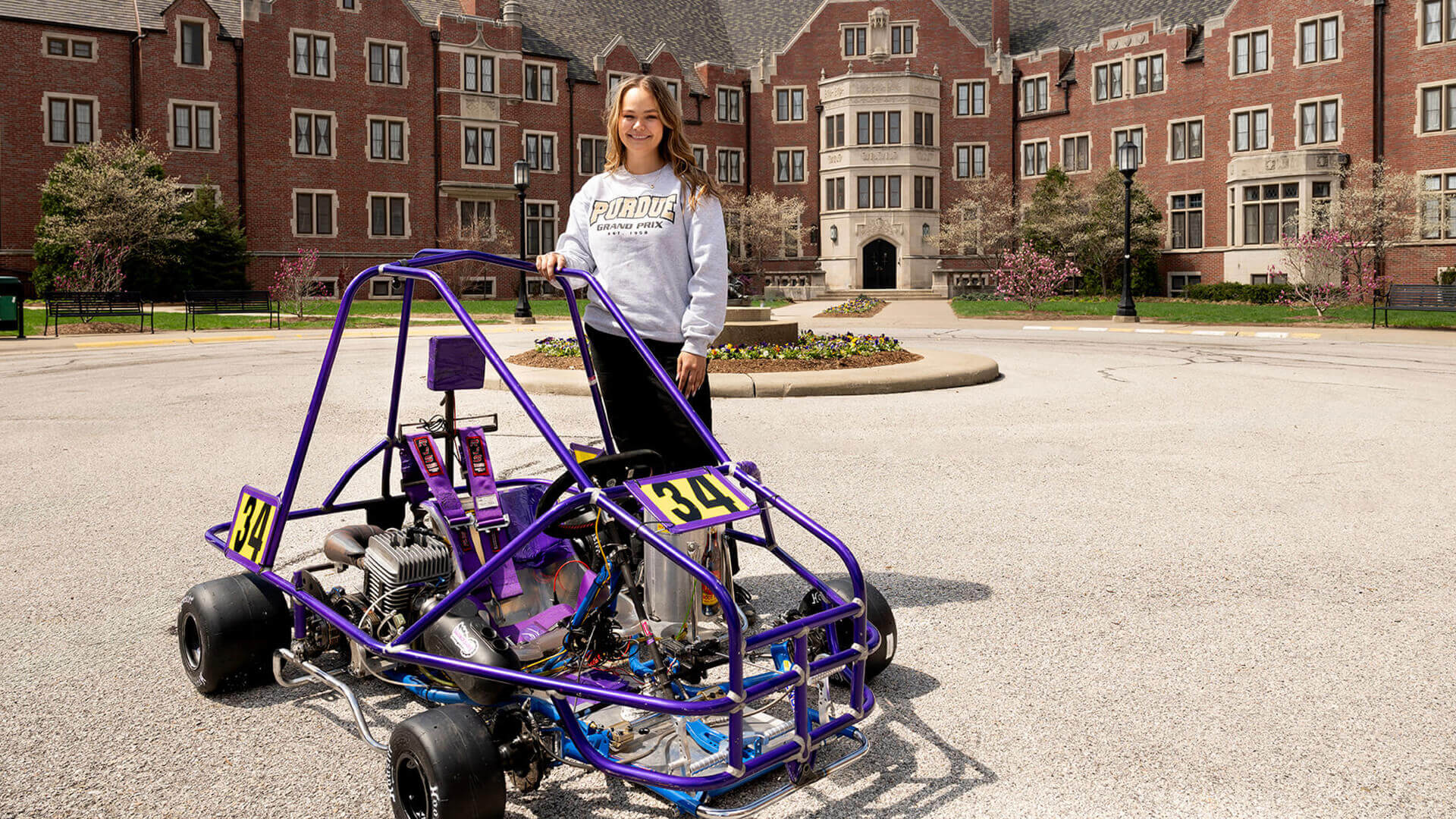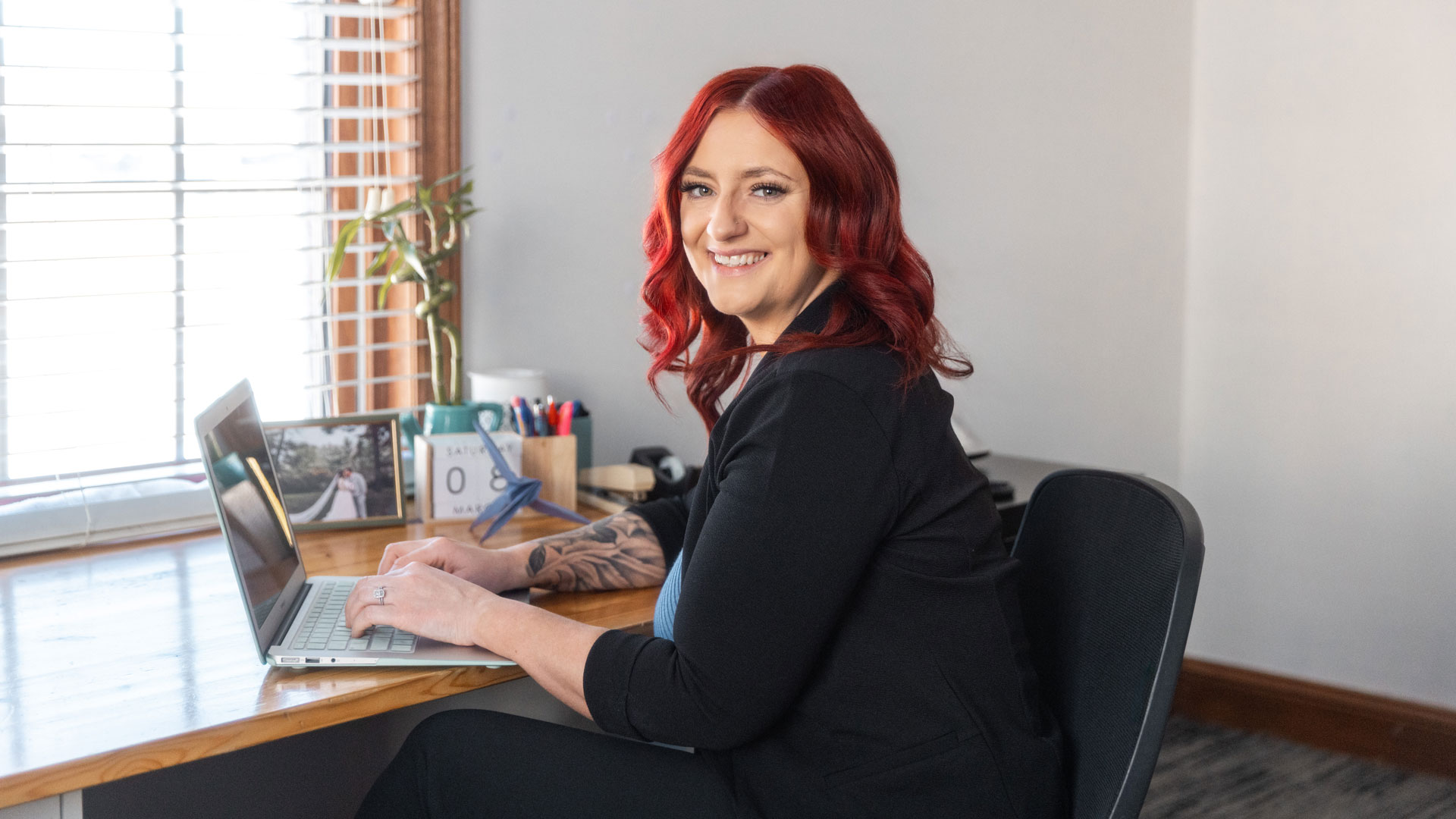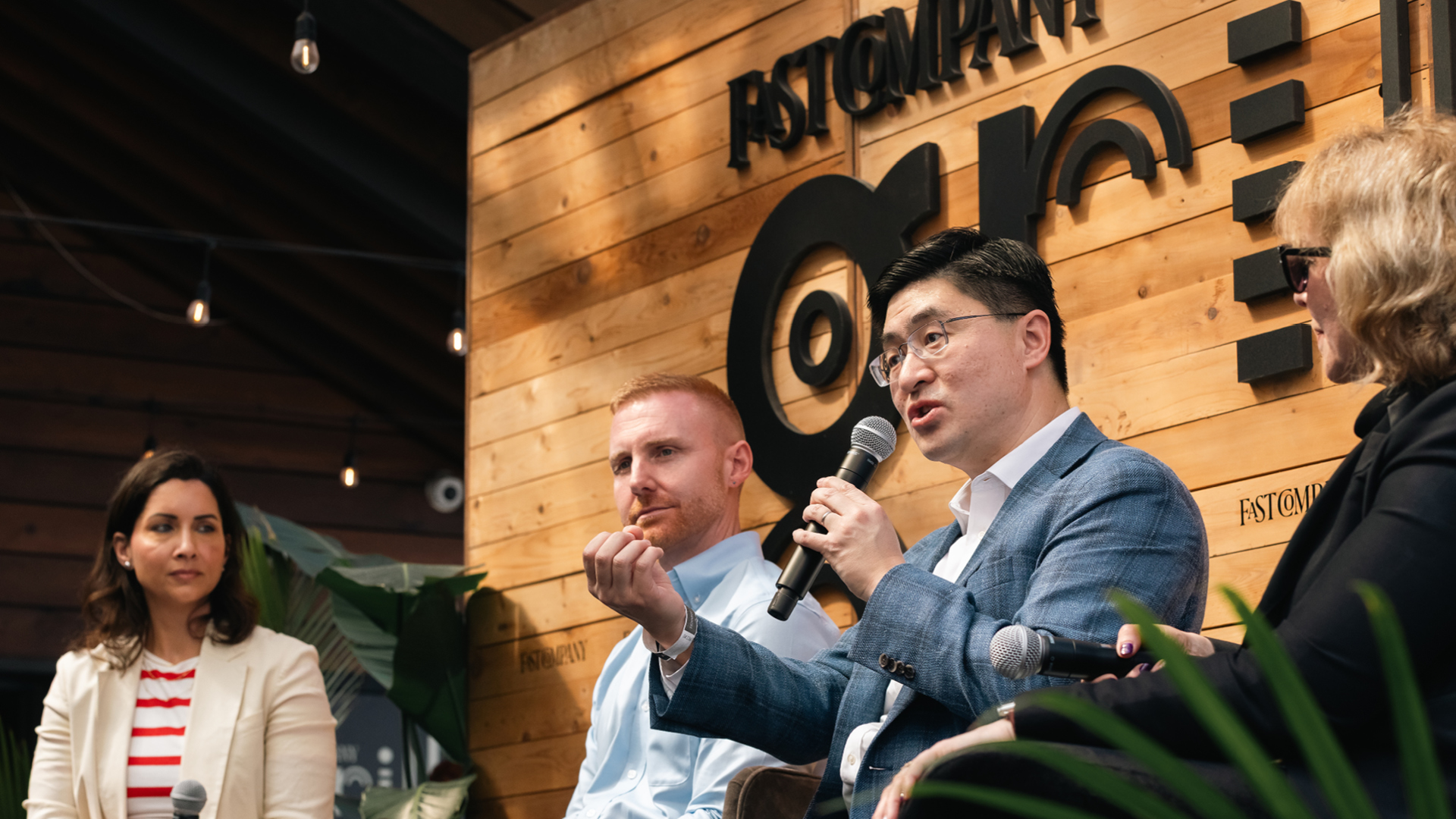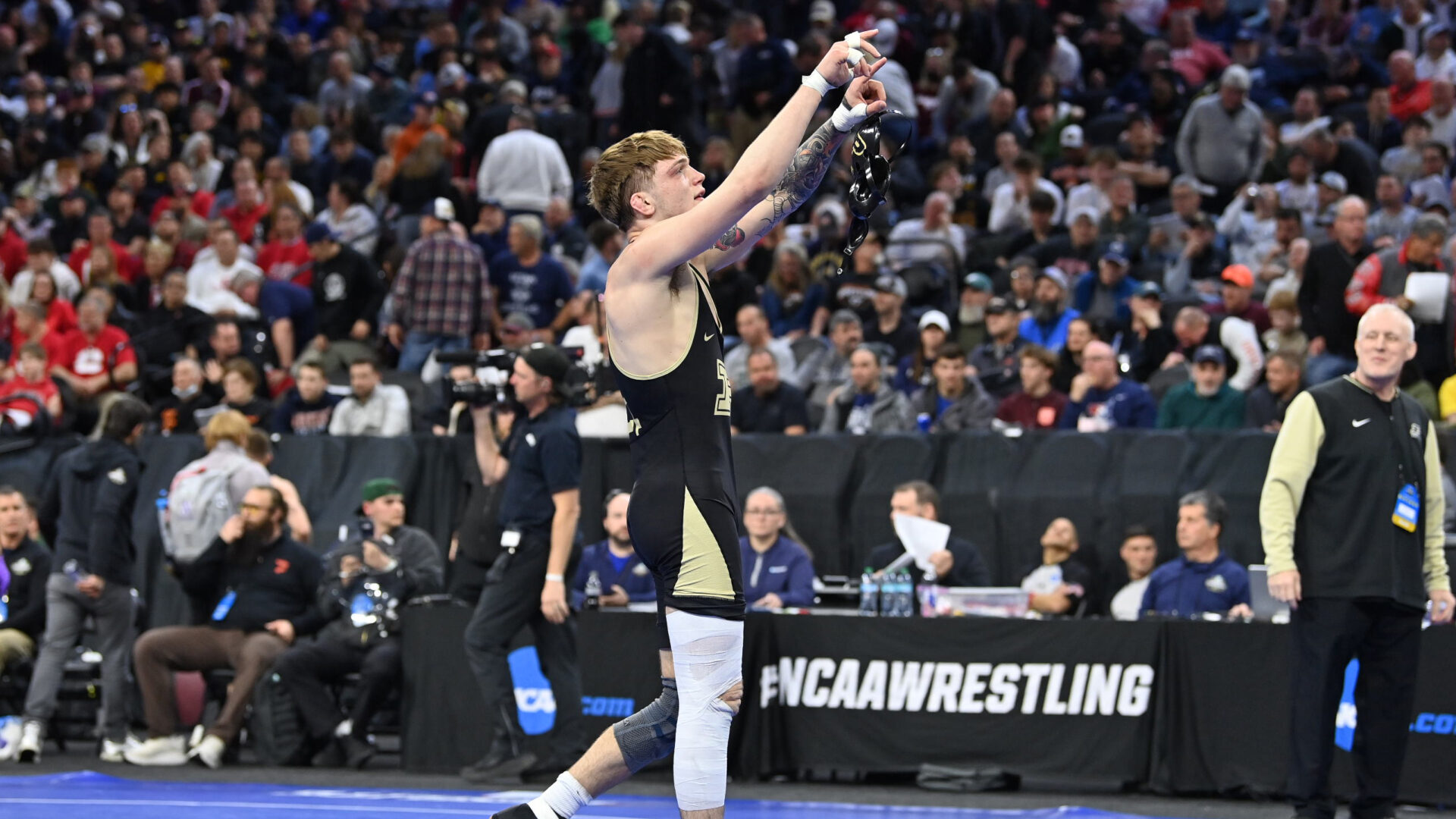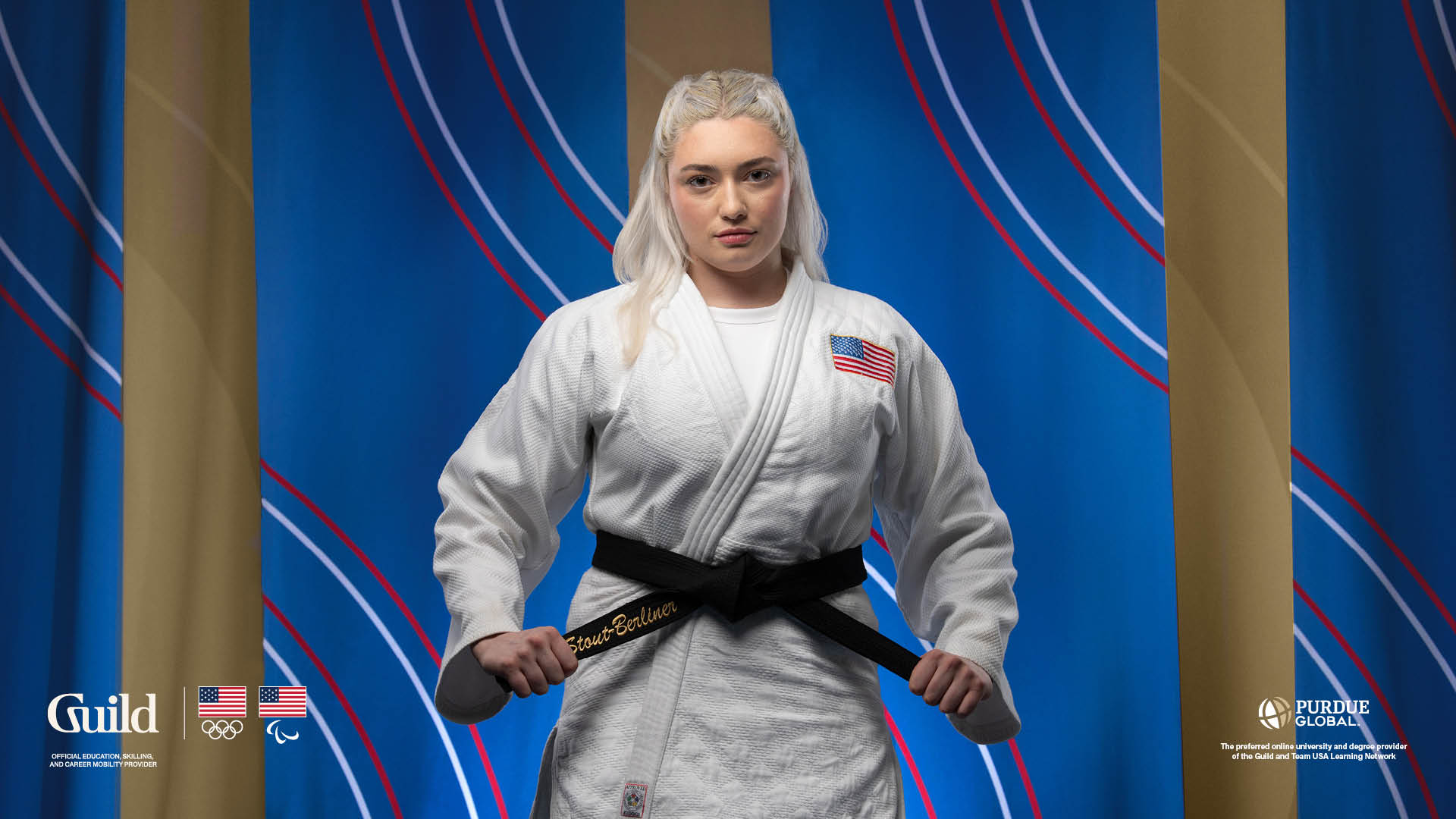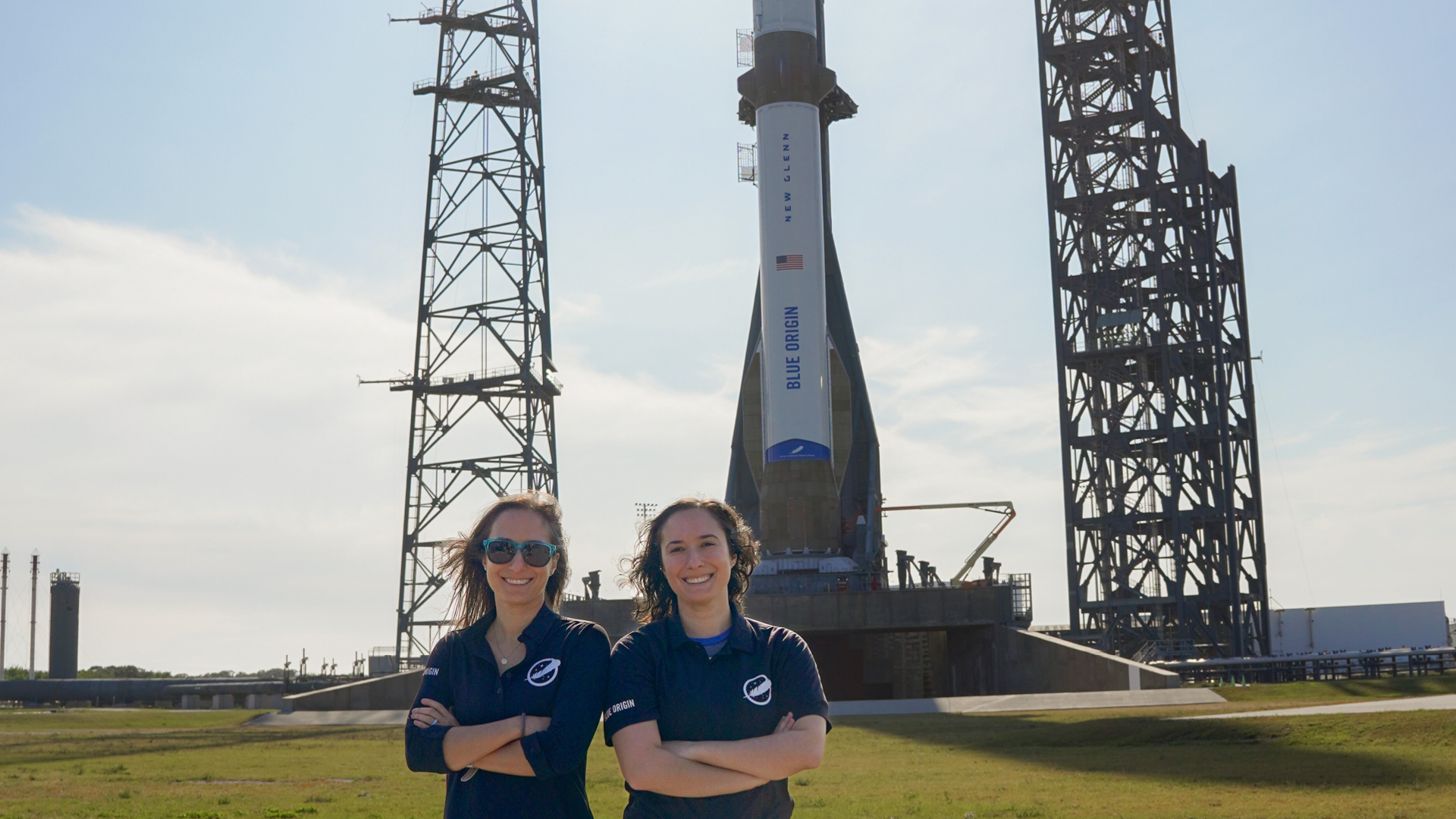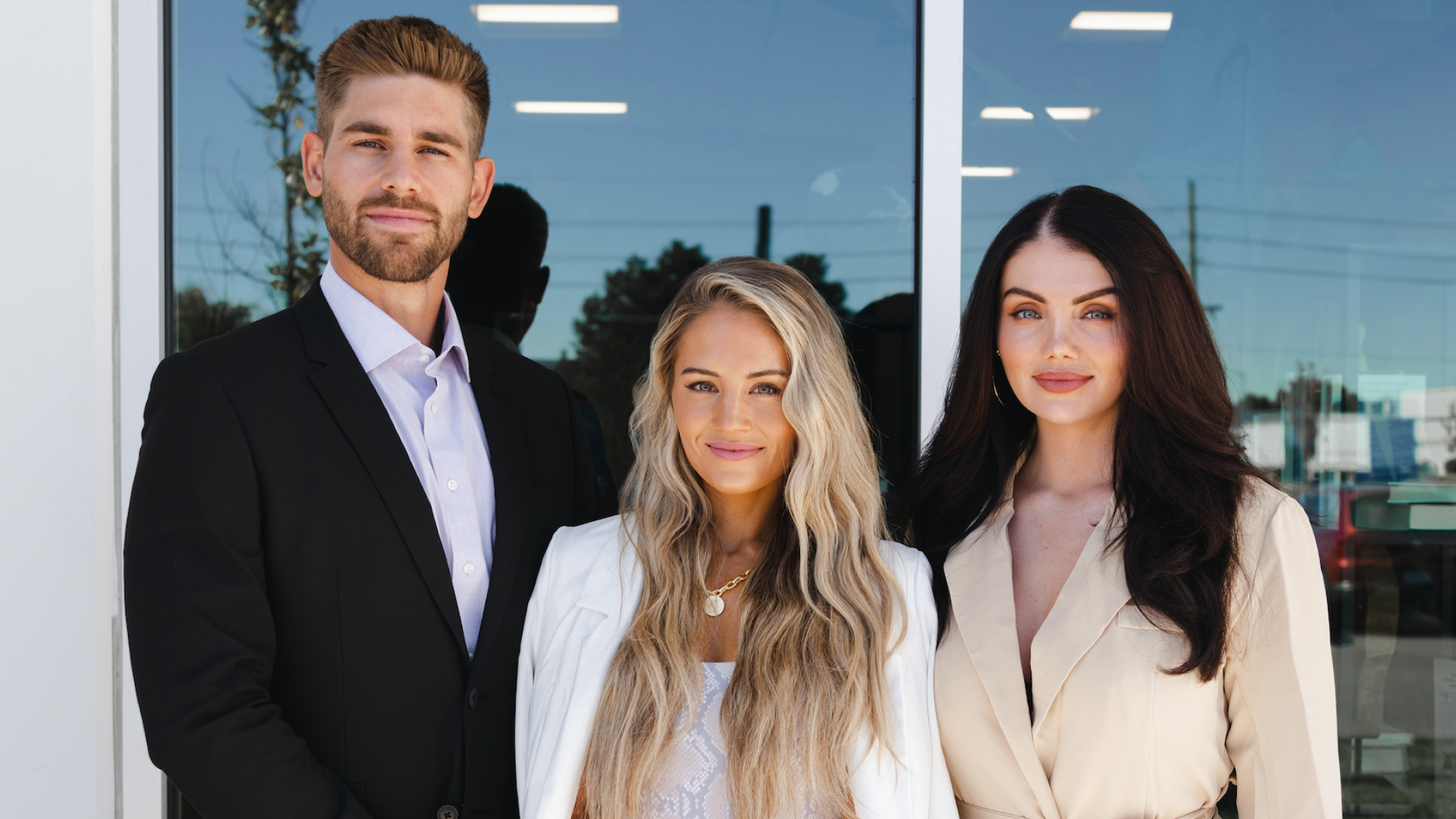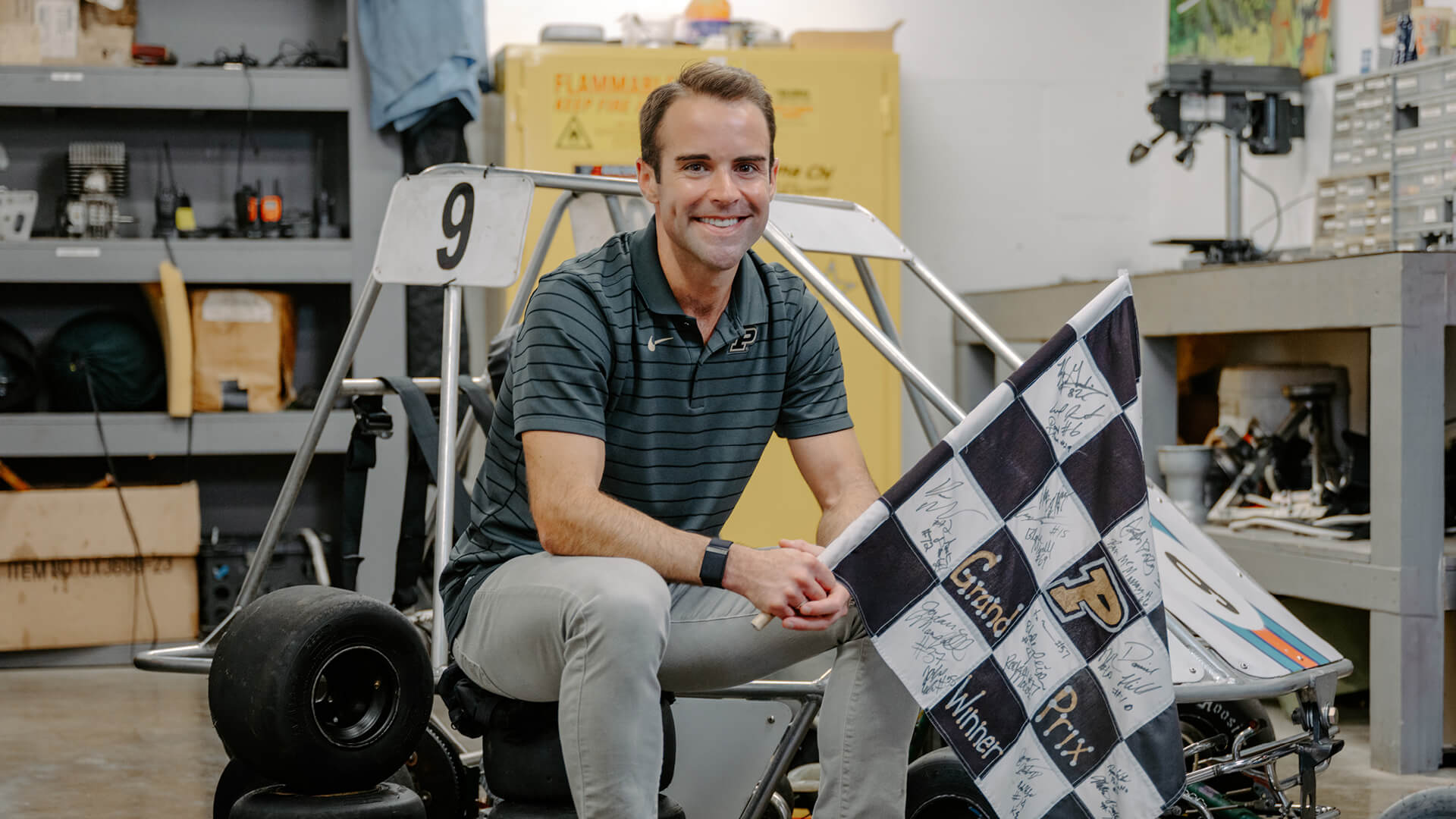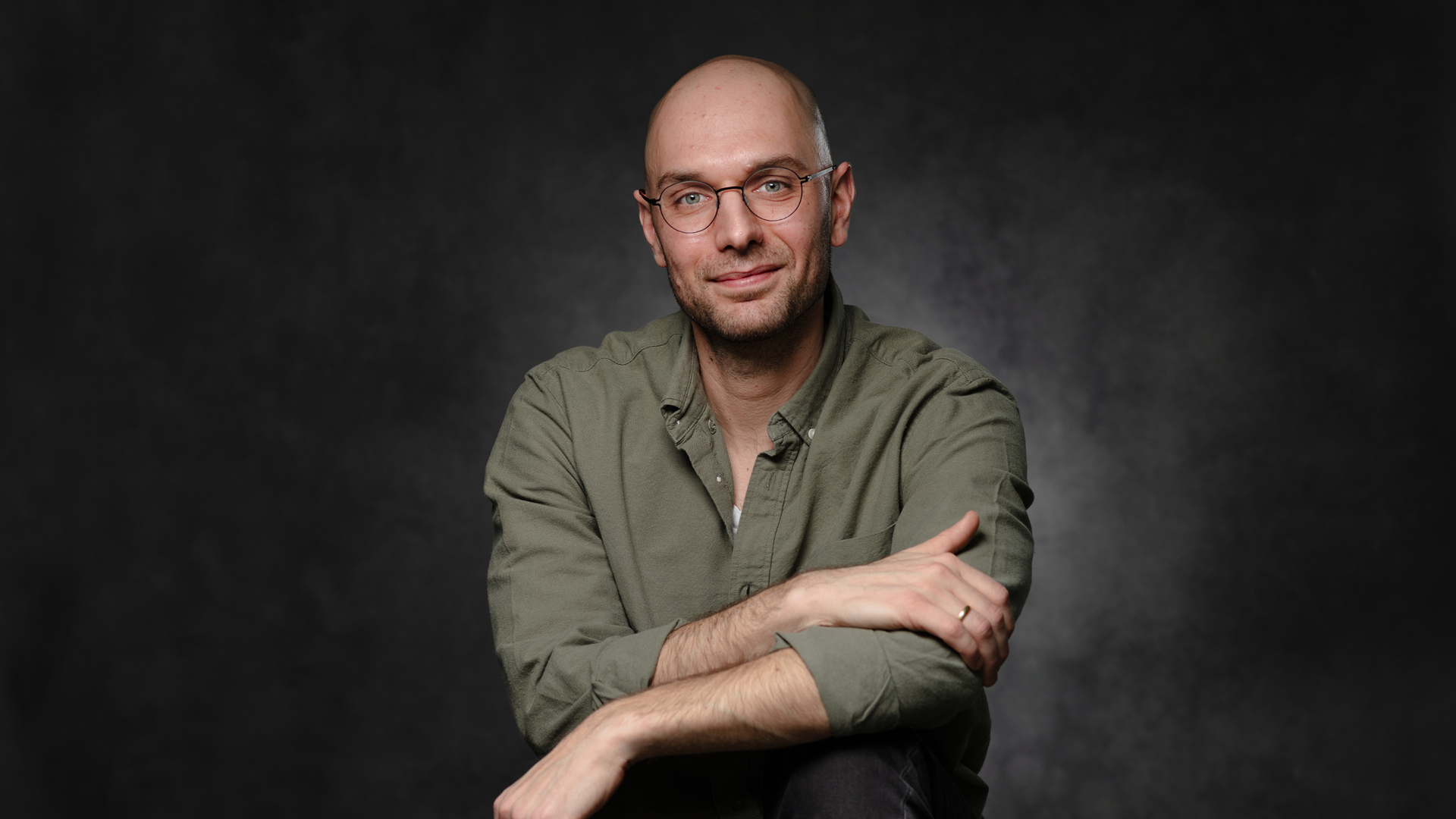Exceptional Early Career Teaching Award honors two undergraduate faculty
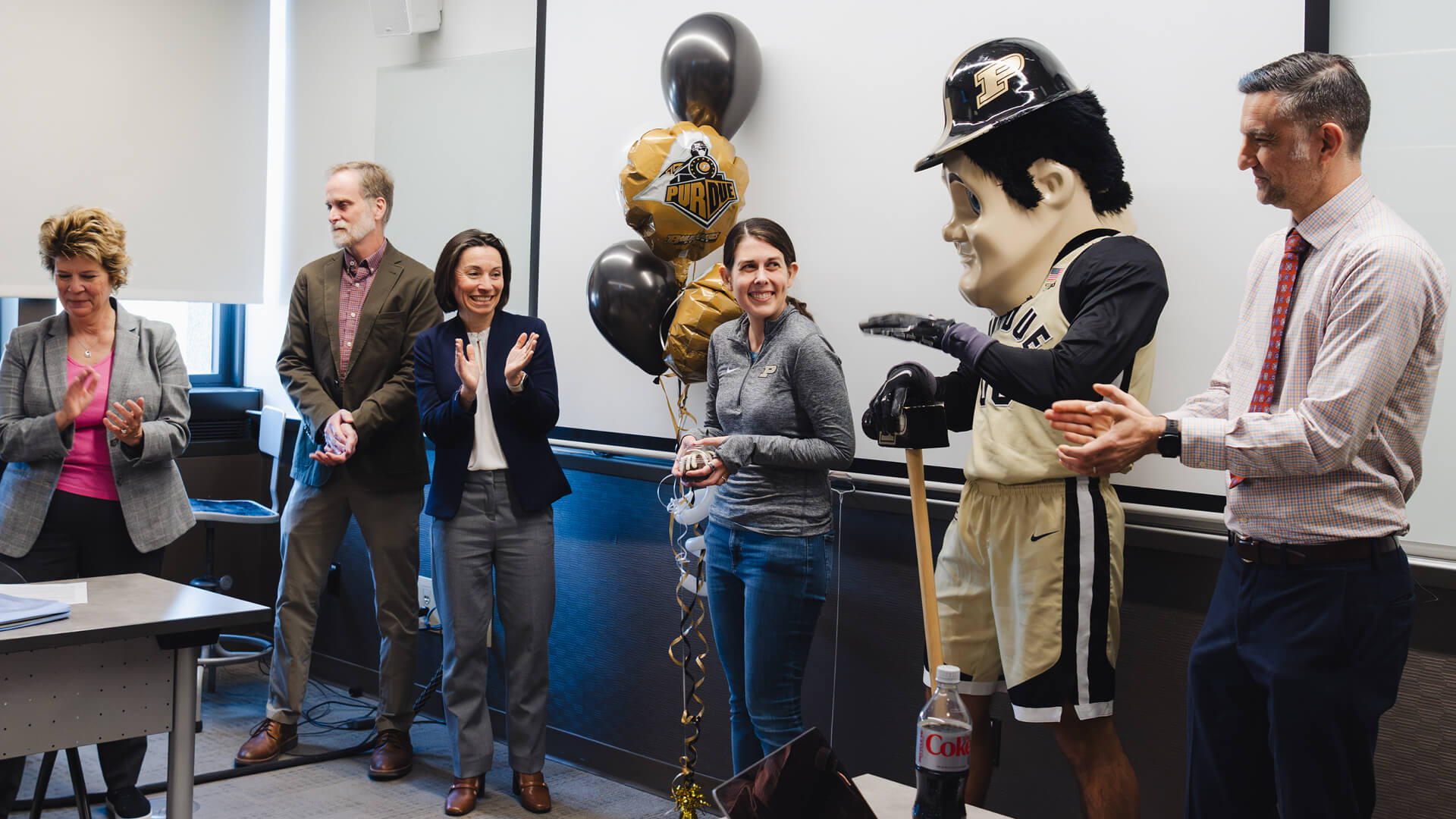
Betsy Parkinson, assistant professor of chemistry and medicinal chemistry and molecular pharmacology, celebrates the surprise announcement of her Exceptional Early Career Teaching Award.
Betsy Parkinson and Lindsey Payne recognized for excellence in and out of the classroom
Betsy Parkinson and Lindsey Payne, winners of the 2023-24 Exceptional Early Career Teaching Award, embody the ideal that the “teaching responsibility to students does not stop at the classroom door.” They persistently demonstrate their “readiness to aid and motivate students in a counseling and advisory capacity” through distinctive strategies and simple acts of kindness.
Purdue University began offering the early career award to honor outstanding undergraduate faculty members on the West Lafayette campus with the rank of assistant professor. Of the hundreds of Boilermakers eligible, Parkinson and Payne have distinguished themselves not only as skilled educators, but also as remarkable human beings.
I am so appreciative of my students. There are many fantastic professors on Purdue’s campus, and it’s just a huge honor to receive this award.
Betsy Parkinson
Assistant professor of chemistry and medicinal chemistry and molecular pharmacology
Betsy Parkinson
Betsy Parkinson, assistant professor of chemistry and medicinal chemistry and molecular pharmacology, fell in love with both science and teaching at an early age. Her experiences growing up on a farm in Mississippi inspired, in part, her current research on soil-dwelling bacteria and medicines based on natural products (molecules made by living organisms). Her passion for sharing knowledge is something that has always been a part of her, too.
“I’ve loved teaching for a long time,” she says. “Even in middle school, I was the annoying kid who was trying to tutor her friends. I was like, ‘I can tutor you. I can tutor you.’ Being honored with the Early Career award for doing something that I love is so special to me. I really appreciate it.”
Parkinson’s path to Purdue started with her undergraduate education at Rhodes College in Memphis, Tennessee, where she majored in chemistry and participated in undergraduate research at St. Jude Children’s Research Hospital.
“I was in a molecular pharmacology lab at St. Jude,” she explains. “So early on, I was at the interface between biology and chemistry.”
Parkinson’s research interests grew, and in graduate school she explored nature-made medicines at the University of Illinois Urbana-Champaign.
Parkinson started at Purdue in 2018 and since then has taught organic chemistry to more than 2,000 undergraduates. She takes the pulse of her students on day one of classes.
“I give students a survey about their feelings toward organic chemistry,” she explains. “Right off the bat I acknowledge they might be scared or nervous. But I reassure them that, although we cover a lot of content, if they study 30 minutes a day, they will be fine. They may not get an A, but they will be totally fine.”
Parkinson has implemented other strategies too, like “Friday Fun Lectures,” which help students connect organic chemistry concepts to their other academic interests, and “Chill With a Chemist” meetings with students outside of class. Supporting struggling students with extra help sessions and promoting on-campus mental health resources are just a few of the ways Parkinson is making a difference in the lives of her students.
“I am so appreciative of my students,” Parkinson says. “There are many fantastic professors on Purdue’s campus, and it’s just a huge honor to receive this award.”
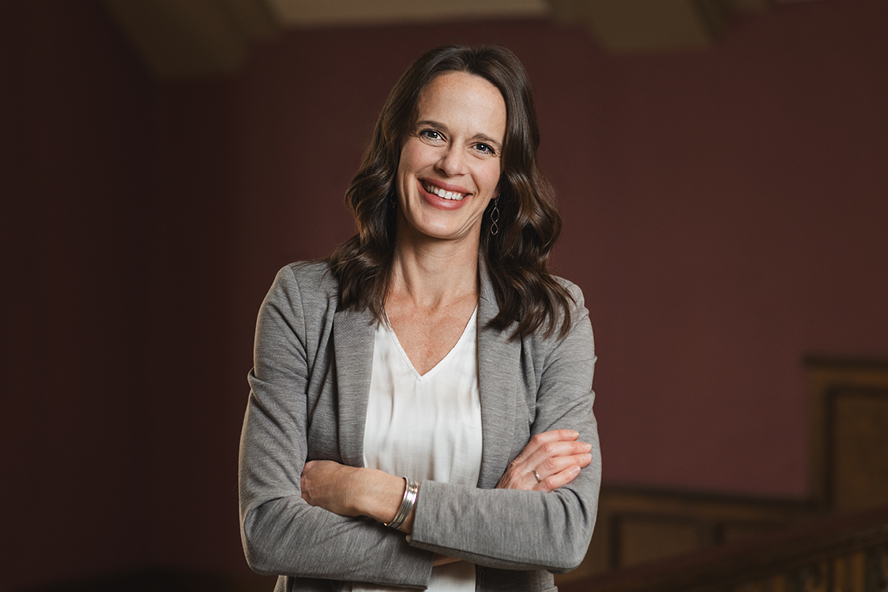
Having the Early Career award be student-centered makes it especially meaningful for me. Knowing that those I am directly impacting are advocating for me reinforces that what I am doing is working. And I really appreciate that.
Lindsey Payne
Director of service-learning and
assistant professor of practice in environmental and ecological engineering
Lindsey Payne
Lindsey Payne has been the director of service-learning for Purdue’s Office of Engagement since 2015 and assistant professor of practice in environmental and ecological engineering since 2021. Her teaching experience began long before that, though.
“I taught high school for four years,” she says. “Biology, earth science and even PE.” Payne also worked for a variety of nonprofits as an educator.
When one of Payne’s colleagues recommended she consider Purdue’s PhD program in ecological sciences and engineering, her career in education moved in a new direction.
As a graduate student at Purdue, Payne worked in the teaching and learning center, and when Larry Nies was looking for a teaching assistant for an environmental and ecological engineering class, her name came up. Payne worked with him in that role for four years, advancing to co-instructor of the class and eventually assisting with redesigning the course.
Nies also gave Payne the opportunity to develop her own service-learning course and to serve as the instructor of record. “And I realized at that point that I truly loved teaching at the college level,” she says.
Payne currently teaches an introductory environmental and ecological engineering class for second-year students, an upper-level service-learning course and an experiential education course for seniors.
“My focus is not just on getting students to become impressive practicing professionals,” she says, “but also on getting them to engage in their communities, to do more than just go to work.”
Payne’s longstanding partnership with the Wabash River Enhancement Corporation enables her students to make community connections with underserved populations and local nonprofits. Students gain professional engineering experience — design, communication, teamwork, grant writing, budget management and leadership — as they oversee a project from inception to implementation.
“They support the implementation of rain gardens and native plantings to capture stormwater on various community partner properties,” she says. “All with the goal of increasing the health of the Wabash River.”
The health of her students is equally important to Payne, and she has mental wellness check-ins with them every other week via Brightspace. She says that in final course evaluations, students express how much they appreciate her concern for them.
“Having the Early Career award be student-centered makes it especially meaningful for me,” she says. “Knowing that those I am directly impacting are advocating for me reinforces that what I am doing is working. And I really appreciate that.”
